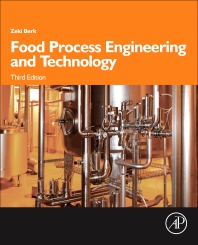Walmart, IBM, Tsinghua University explore use of blockchain technology
Blockchain technology is designed to generate transparency and efficiency in supply chain record-keeping.

IBM, North Castle, N.Y., Walmart, Bentonville, Ark., and Tsinghua University, China, announced a collaboration to improve the way food is tracked, transported and sold to consumers across China.
Blockchain technology is designed to generate transparency and efficiency in supply chain record-keeping.
Early indications are that blockchain provides a permanent record of transactions that are then grouped in blocks that cannot be altered. It could serve as an alternative to traditional paper tracking and manual inspection systems, which can leave supply chains vulnerable to inaccuracies.
With blockchain, food products can be digitally tracked from an ecosystem of suppliers to store shelves and ultimately to consumers. When applied to the food supply chain, digital product information such as farm origination details, batch numbers, factory and processing data, expiration dates, storage temperatures and shipping detail are digitally connected to food items; the information is entered into the blockchain along every step of the process. Each piece of information provides critical data points that could potentially reveal food safety issues with the product. The information captured in each transaction is agreed upon by all members of the business network; once there is a consensus, it becomes a permanent record that can’t be altered. This helps assure that all information about the item is accurate.
The record created by the blockchain can also help retailers better manage the shelf life of products in individual stores, and further strengthen safeguards related to food authenticity.
This collaboration takes advantage of the distinctive strengths of each member of the team. Scientists from IBM Research - China are among the leading edge technologists at IBM now in the forefront of the rapid evolution of blockchain. Working alongside top talent in transaction security and authentication technology from Tsinghua University and with Walmart’s expertise in supply chain, logistics and food safety, they are creating a new model for food traceability, supply chain transparency and auditability using IBM Blockchain based on the open source Linux Foundation Hyperledger Project fabric.
“Advanced technology has reached into so many aspects of modern life, but it has lagged in food traceability, and in particular in creating more secure food supply chains. Our collaboration with Walmart and Tsinghua University is a step of global significance to change that,” says Bridget van Kralingen, senior vice president, industry platforms, IBM. “Food touches all of us, everywhere, so we are experimenting in China with Walmart and Tsinghua given the size and scale of food consumption in this country.”
“As advocates of promoting greater transparency in the food system for our customers, we look forward to working with IBM and Tsinghua University to explore how this technology might be used as a more effective food traceability solution,” says Frank Yiannas, vice president, food safety, Walmart.
“China’s rapid economic growth has led to massive opportunities for innovation, but it has also presented quality of life challenges, including helping to assure that food sold in the country is safe to eat,” adds Chai Yueting, professor at the National Engineering Laboratory for E-Commerce Technologies, Tsinghua University. “Similarly, we have been working with IBM on projects such as Green Horizons to address environmental challenges. Tsinghua University is also committed to in-depth research of food safety – one of the most important areas that the world is focusing on. We believe the work with IBM and Walmart can serve as a global model for others to follow and replicate.”
Looking for a reprint of this article?
From high-res PDFs to custom plaques, order your copy today!







